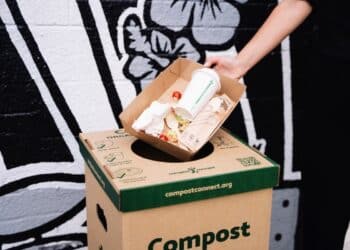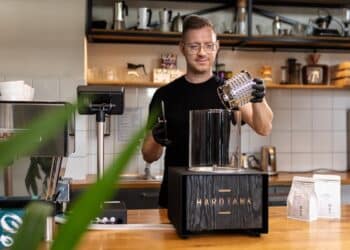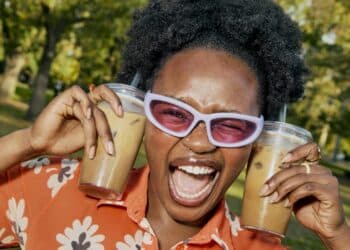Coffee and cycling are two passionate pursuits that are often inseparable. But why are the seemingly unrelated hobbies so firmly entrenched in each other’s cultures?
When the layman thinks about cycling, one of their first thoughts will inevitably land on the image of Lycra-clad riders sipping a coffee in a café at the end of a long ride.
For many in the cycling community, coffee is almost as important a part of the ride as the bike itself.
Cycling’s coffee obsession can be traced through the years of European Grand Tours – the Tour de France, the Giro d’Italia, and the Vuelta a España. From all-time great cyclist Eddy Merckx’s sponsorship with Faema in the 1960s through to the current crop of elite cyclists, the sport’s enthusiasm for coffee is an itch that will never quite be scratched.
That love of coffee permeates through all levels of the cycling community. From the professional through to the weekend warrior, the pull of a good coffee is one of the sport’s great equalisers.
The best evidence of this merging of passions can, perhaps, be found at MC Cyclery’s new clubhouse, located a stone’s throw from Centennial Park or “cycling central” in Kensington, Sydney.
A bike shop by trade, MC Cyclery’s partnership with La Pavoni has seen the Kensington cycling destination and retail store flourish into one of Australia’s best advertisements for the successful marriage of coffee and cycling, and the community it creates.
On its ground floor is a typical yet well-equipped bike shop, but its mezzanine features a sprawling lounge and walls of cycling memorabilia, which customers and members can enjoy alongside specialty coffee brewed on site.
It has become a place for the local cycling community to not just buy a bike or have one serviced, but a meeting place for before and after rides where people gather to discuss these intertwined passions.
Co-Owner of MC Cyclery Harvey Crabtree has experienced some of the best cycling environments across the globe. He tells BeanScene the team at MC Cyclery have taken inspiration from some of these iconic locations.
“The other Co-Owner of MC Cyclery, Andy, and I are very lucky and privileged to have ridden bikes all around the world, and we’ve taken a little bit from everywhere,” says Harvey. “Places like The Service Course in Girona, or Rapha clubhouses in London, Mallorca, Singapore, and New York.
“The best ones are where people have really been able to successfully combine hospitality with bike retail and add a service course element.
“The best Rapha clubhouses in the world are the ones that are managed by ex-hospitality professionals, not necessarily bike trade professionals, where we treat the customers as the ‘guest’.
“MC Cyclery’s still a fully functional bike shop where you can come to buy a tube and be in and out in five seconds, or you can sit upstairs and work with a coffee in the lounge area using our Wi-Fi, watching race replays while we service your bike downstairs.”

Sites like Harvey’s have found success not only through providing the extra early morning pep needed to undertake long rides from as early as 5am, but also through generating a close-knit community that shares an appreciation of coffee.
The early morning exercise regime is rapidly gaining popularity around metropolitan Sydney through the introduction of run clubs and group fitness classes like F45 and BFT, but it’s a time of morning cyclists have been making their own for decades.
Harvey is no different, but his morning routine has somewhat shifted due to the popularity of his shop as a meeting place for the local contingent of club members.
“I would always be the first in the store at about 5am to prep the machine and make sure everything was set right for the ride return, then I’d head off to wherever the morning ride was meeting, and we’d come back to the clubhouse,” he says.
“Now, people have got used to the fact I’m there at that time, so instead of having a beautiful, quiet double espresso by myself, there will be people tapping on the glass and coming in for a coffee.”
The strength of MC Cyclery’s coffee- and cycle-loving community is no more apparent than in the immediate aftermath of a Saturday morning ride.
“What we’ll see after the ride on a Saturday morning is 40 to 60 wheels parked in the loading dock and 30 people upstairs watching races, having a chat, and enjoying themselves. Most of them will stay for two or even three coffees.
“People want to hang around and spend more time here. It creates a far more social environment than the alternative of finishing at someone else’s coffee shop and sitting on milk crates, where eventually everyone just gets onto their bikes and scatters to the four winds.”
Head of La Pavoni Australia Leon Wolf often frequents the MC Cyclery clubhouse, so much so he usually finds himself pulling coffees there after a ride.
As a keen cyclist with his finger on the pulse of the coffee world, he is fully aware of why the two passions are so closely linked by those who enjoy them.
“People in the cycling community really value craftsmanship, and it’s the same with coffee,” Leon says.
“You can buy a coffee machine or a mould-made road bike off the shelf, and it will make a coffee or ride like a bike, but there’s an added connection piece with the appreciation of a handmade product, and the care and investment that has been placed in it by the technician or manufacturer.
“That connection extends to La Pavoni and the MC Cyclery clubhouse. The road bikes they sell are artisan, bespoke geometry, handmade, and super authentic, from the luxe brands including Passoni and Parlee, while La Pavoni products have also been handmade since 1905 in a factory that
is still standing in Milan.”

MC Cyclery’s transition from bike shop to meeting place is far from unique, but it’s one that has been achieved with incredible finesse.
Harvey admits profit from coffee is the furthest thing from the business’ mind on any given day, and Leon believes more bike shops should look to follow the example set by MC Cyclery.
“I think the more cycling shops that can turn into clubhouses and create communities, the better for the culture and the sport,” Leon says.
“You can have an experience where you ride your bike with tunnel vision, get home, and are exhausted, or you can have an experience where you’ve had a cup of coffee, met with friends, had a great ride, socialised, and had a rest at the clubhouse.”
There is, however, one thing MC Cyclery will not do when serving its coffee.
“We have a very small menu, and on the bottom it says, ‘no chocolate, we are a bike shop,” says Harvey. “A couple of the ladies got a bit militant about that, so I had to bend a little bit, but they’re the only two who are allowed it. Their names are even on the shaker.”
He says that desire to marry the quality of La Pavoni equipment with high-quality beans has created an unmissable experience for the local cycling community,
“We knew from the start we needed to have our equipment and our beans on the same level and not take shortcuts. We’ve had ST. ALi on the beans since day one with its Italo Disco blend,” he says.
“We have people who never deviate from the long black, cortado, or short double mac, right the way through to people who can literally consume pints of cappuccino.
“We’re celebrating what we’ve got and using it socially as much as commercially, and that’s the missing link.
“This is what happens when you let people who love bicycles and hospitality build a bike store.”
For more information, visit au.lapavoni.com
This article appears in the June 2025 edition of BeanScene. Subscribe HERE.




